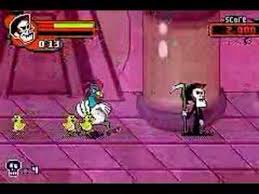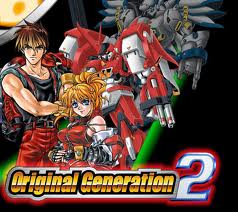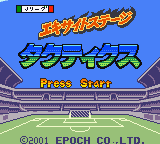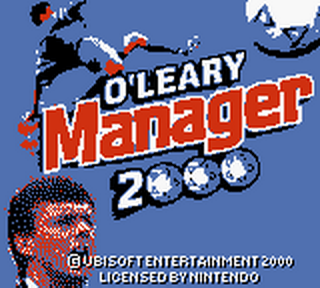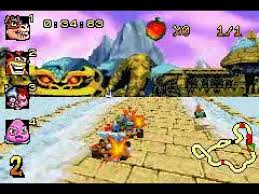 Game info
Game infoCrash Nitro Kart, released in Japan as Crash Bandicoot: Bakusou! Nitro Kart (クラッシュバンディクー:爆走!ニトロカート Kurasshubandikū: Bakusō! Nitorokāto lit. "Crash Bandicoot: Bakuso! Nitro Kart"), is a 2003 racing video game developed by Vicarious Visions and published by Universal Interactive Studios (along with Konami in the Japanese release) for the PlayStation 2, Nintendo GameCube, Xbox, Game Boy Advance and N-Gage. The home console and Game Boy Advance versions were released in North America on November 11, 2003, In Europe on November 28, 2003, In Australia on December 4, 2003; and in Japan on July 8, 2004 for the PlayStation 2 and Nintendo Gamecube and August 26, 2004 for the Game Boy Advance version. The PlayStation 2 version was rereleased for the Sony Greatest Hits line-up on December 2004 and for the Platinum Range on August 27, 2004. The Xbox version was rereleased for the Platinum Family Hits line-up in 2005. The N-Gage version of the game was released in Europe on June 30, 2004 and in North America on July 28, 2004. The mobile phone version was released on September 20, 2004. The PlayStation 2 version was re-released in the three-disc "Crash Bandicoot Action Pack" compilation (alongside Crash Twinsanity and Crash Tag Team Racing) in the United States on June 12, 2007 and in Europe on July 20, 2007.
The game is the ninth installment in the Crash Bandicoot series. It is an indirect sequel to Crash Team Racing and the first full motion video based game in the series. The game's story centers on the abduction of Crash Bandicoot, along with other characters in the series, by the ruthless dictator Emperor Velo XXVII. Threatening to destroy the Earth if they refuse, he forces them all to race in his gigantic coliseum for the entertainment of his subjects. Crash Nitro Kart received mixed reviews, with reviews varying from version to version. The home console version was met with generally fair reviews. Reviewers dismissed the game as a generic kart racer, but commented positively on its "power slide" system. The Game Boy Advance version earned slightly better reviews than the console version, while reviews for the N-Gage version were middling, with much of the criticism going to the game's "tunnel vision".




